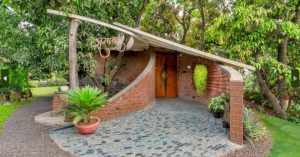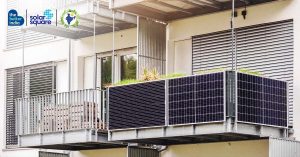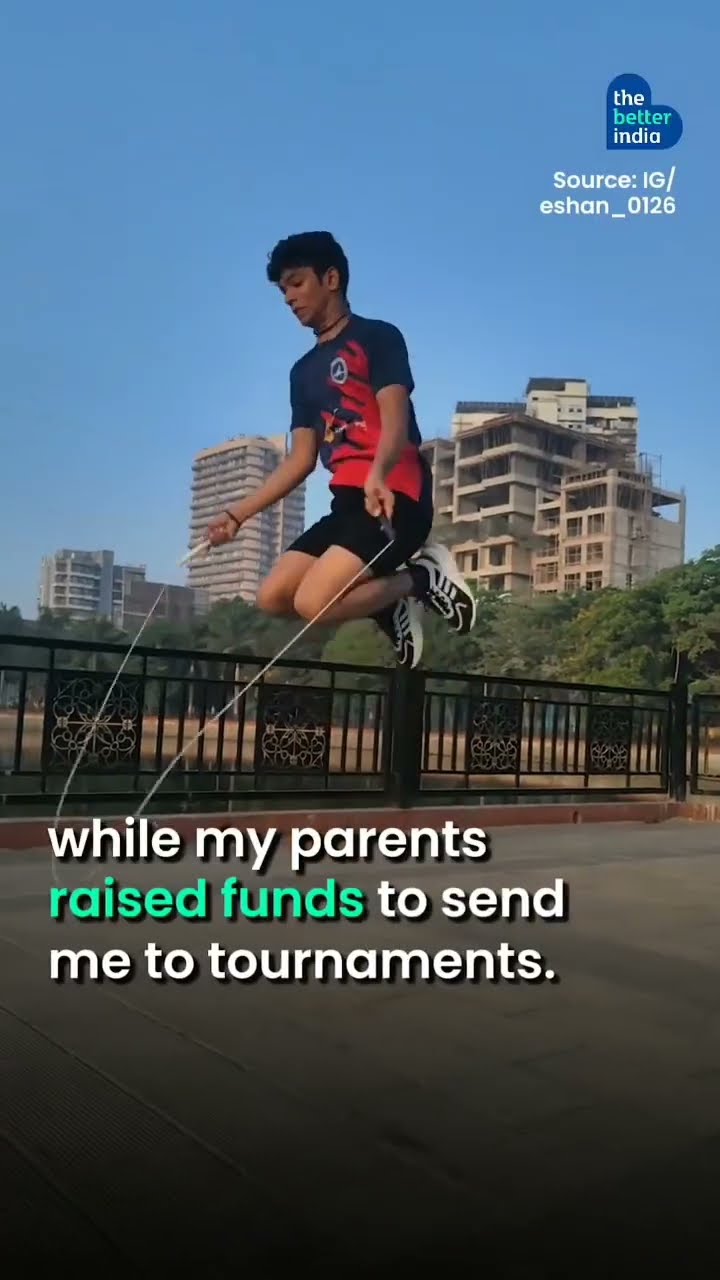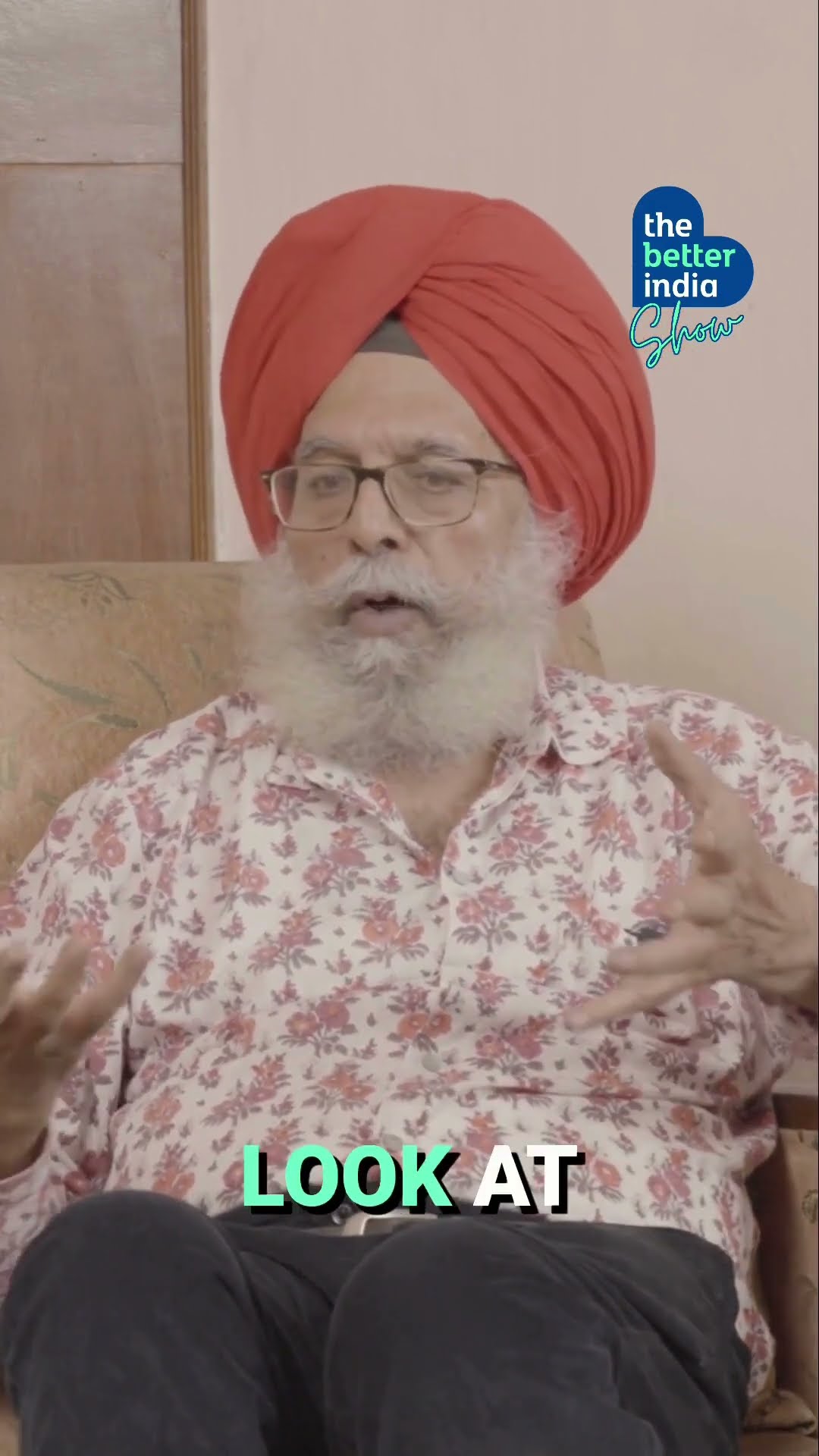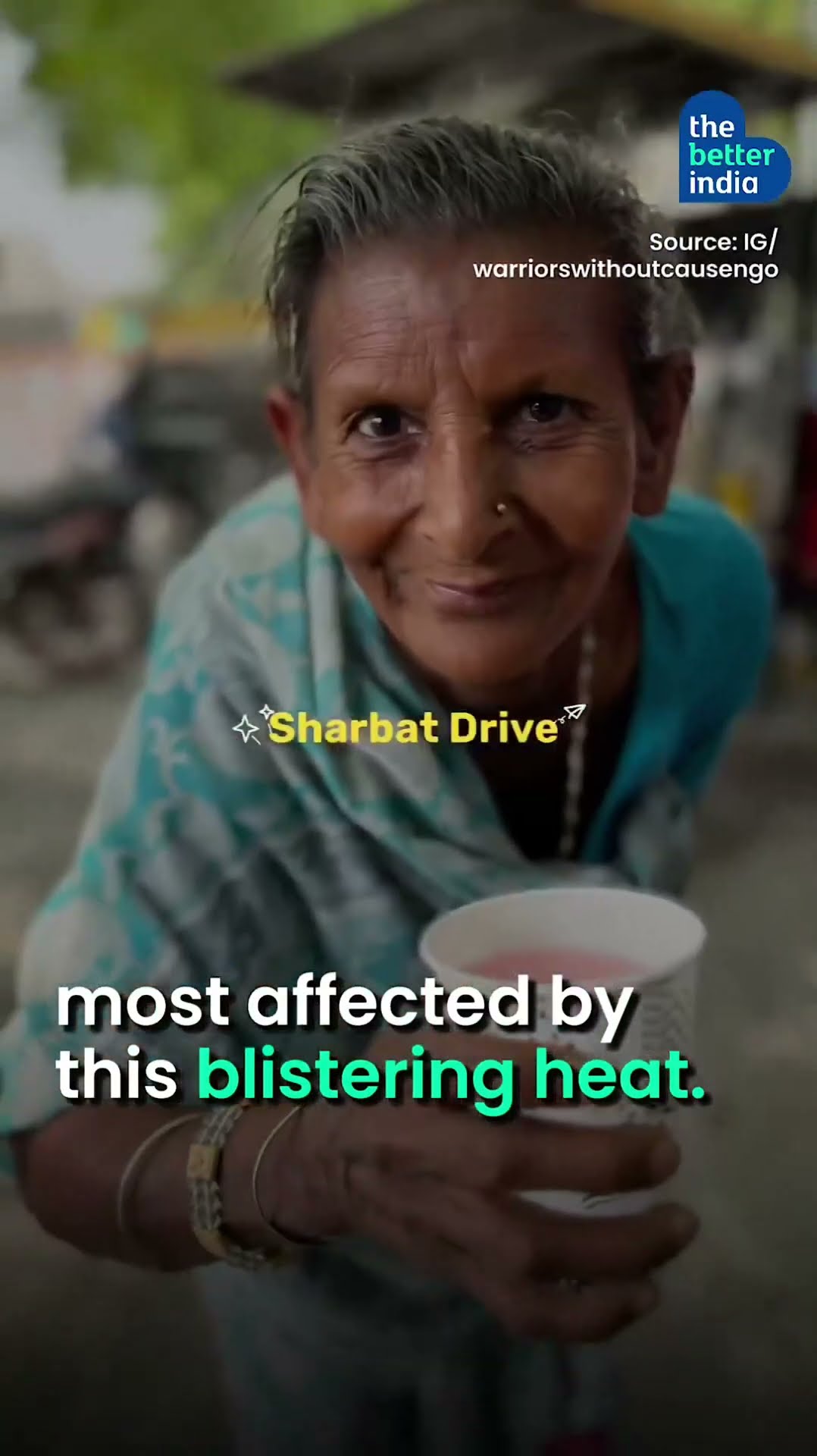IFS Officer Transformed a Barren UP Land into His District’s 1st Eco-Tourism Hub
IFS officer Vikas Nayak came across a barren land in the ravines of Firozabad district in Uttar Pradesh. Once a breeding ground for thieves and dacoits, he developed it into a green oasis with wood huts, geo treks, a butterfly park, and more.
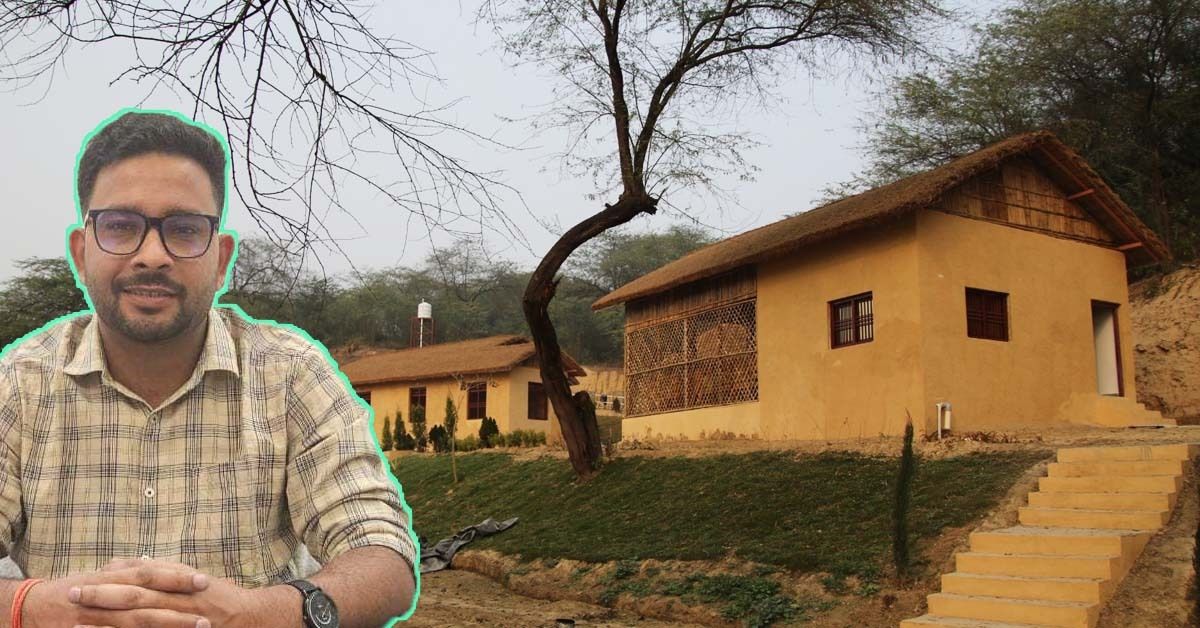
When Indian Forest Service (IFS) officer Vikas Nayak saw the land where Rapdi Eco Tourism Centre stands today, he saw immense potential. Sitting barren right next to the River Yamuna, the place was a deserted land with dying biodiversity.
“There was something about the land which made me want to conserve biodiversity. When I saw the place, I could envision a spot much more than a barren plot. I immediately started to draw a plan with my team,” he shares in a conversation with The Better India.
Conceptualised in 2023, 11 months later, Vikas was able to build Rapdi Ecotourism Centre along with his team. “On its opening day, we had about 1,100 people swarming the place, which is a lot for a place like this,” muses Vikas.
While attempting to save the biodiversity of the place was a key factor, there was another reason to rejuvenate the place — spreading awareness about conscious tourism.
A ravine experience
Located a short drive away from Shikohabad in the district of Firozabad, the place is home to hundreds of trees, wooden huts, boats and a lot more and was “taken up to create the first ecotourism facility in the district.”
“When I was first posted in the area, I realised how it did not have any ecotourism place. The locals were not very active in natural conservation either and I wanted to do something about it,” he says.
Incidentally, the officer started to look around the area and found the perfect place here itself.
“It was a perfect place as it had ravine qualities and also a little elevation. I got down to drawing plans and making a budget. We formulated a project and presented it to the forest departments, securing funding for its implementation. Following the funding acquisition, which was in March 2023, we started the work,” he informs.
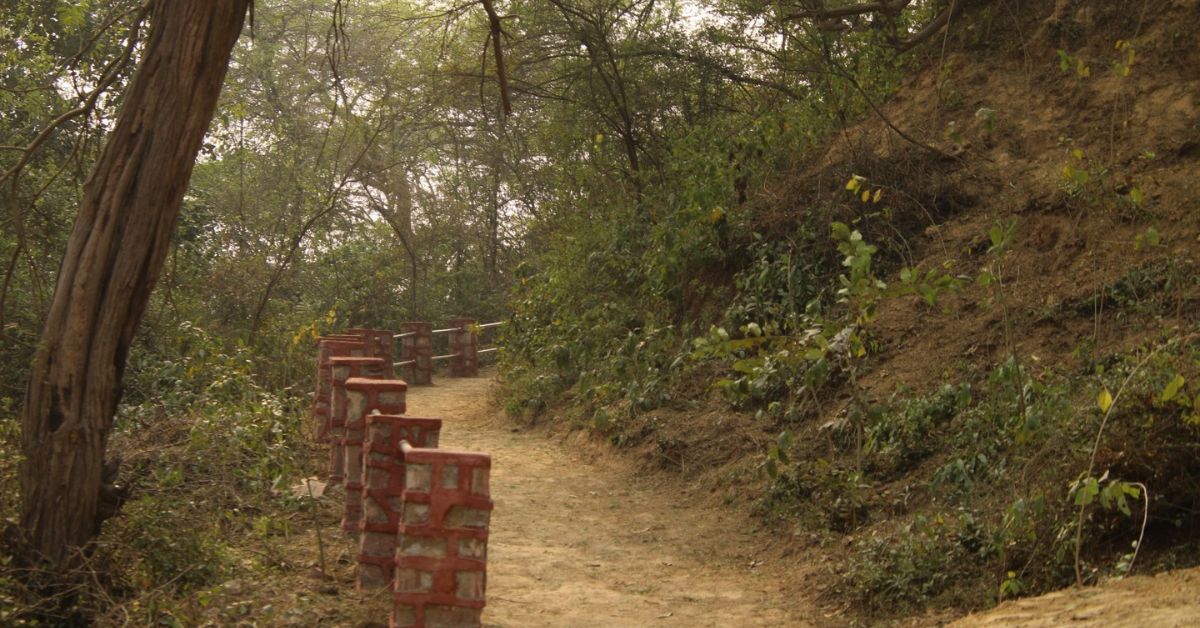
The place was completed and opened to the public without a fee in February 2024. “The place was also made keeping in mind that Agra — which attracts a lot of tourists — is nearby. This ensures that the place might get more visitors,” shares Vikas.
The ecotourism centre has a plethora of activities besides the biodiversity and lush greenery.
“The place includes a ‘geo trek’, wooden cottages for visitors to book and stay, speed boating, bird watching spots, cave explorations, a butterfly park and a cafeteria,” informs Vikas.
He adds, “We have incorporated some elevated features, resembling a hillside terrain, and developed geo treks for exploration. Additionally, we’ve established butterfly spots where visitors can learn about the forest and river ecosystems.”
Setting up and running an ecotourism centre
Before the area became an eco-tourism centre, Vikas informs that the place was a breeding ground for them and dacoits.
“We started with planting trees in the areas and improving the place’s greenery. We also set up habitats for birds and butterflies. Although the place had many trees, we started to plant more and build the place around the trees. The design was such that it did not disrupt the existing biodiversity of the place,” he says.
Vikas wanted to create and attract more tourists to the area, and he also wanted to raise awareness about eco and responsible tourism.
“It has been in the history of the forest department to involve locals in the work. From helping with maintaining the forests to setting up such projects to rescuing wildlife, it has been a tradition for the department to seek help from the local community,” he says.
Taking this tradition, Vikas mapped out a plan that would help the local community grow.
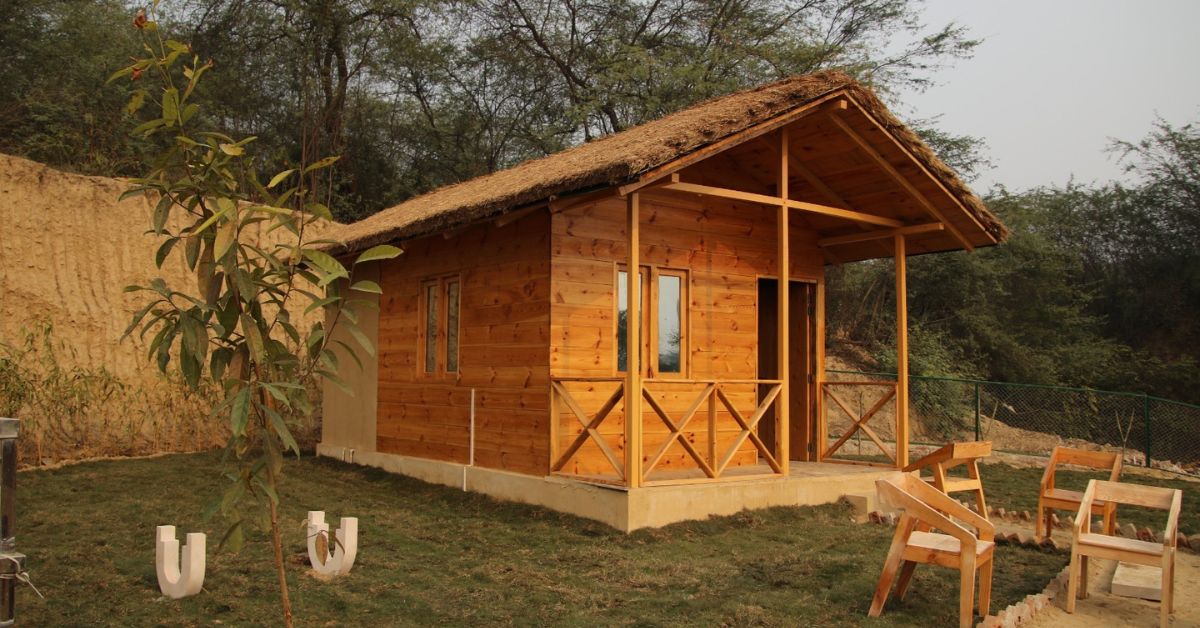
“The facility, which is now fully operational, benefits the local community by providing opportunities for them to manage the canteen, parking facilities, and collecting the entry fees. Additionally, we are conducting hospitality training to ensure quality service for visitors, including guidance on serving food and interacting during nature treks,” he says.
A committee has been established to oversee the facility’s management, with a portion of the proceeds going to the government as royalty and the rest being allocated to the community, he adds.
Additionally, the place is a 100 percent plastic free zone. “We are not allowing any plastic inside the park. We are also working with SHGs and sourcing local art pieces such as jute bags and wooden art pieces to sell to the visitors,” he informs.
According to him, the clientele for this ecotourism venture is unique, consisting of individuals who understand and appreciate responsible tourism practices. “As a responsible tourist, one must recognise their carbon footprint and minimise environmental impact. In ecotourism, facilities may be limited, but the emphasis is on sustainability and immersion in nature,” he says.
Mohit, who travelled from Shikohabad in Uttar Pradesh to the eco-park, says, “I came with my family to explore the ecotourism centre. The government has taken a very new concept and turned it into a place of recreation. It is really good to see this area flourish into a green oasis.”
He adds that the butterfly park is his favourite part about the park. “There is also a small trek which is fun for you to do with your family. A feature that stands out is that the entire area is pollution-free and does not have any litter. Visitors are also getting awareness and trying to keep the place clean,” he adds.
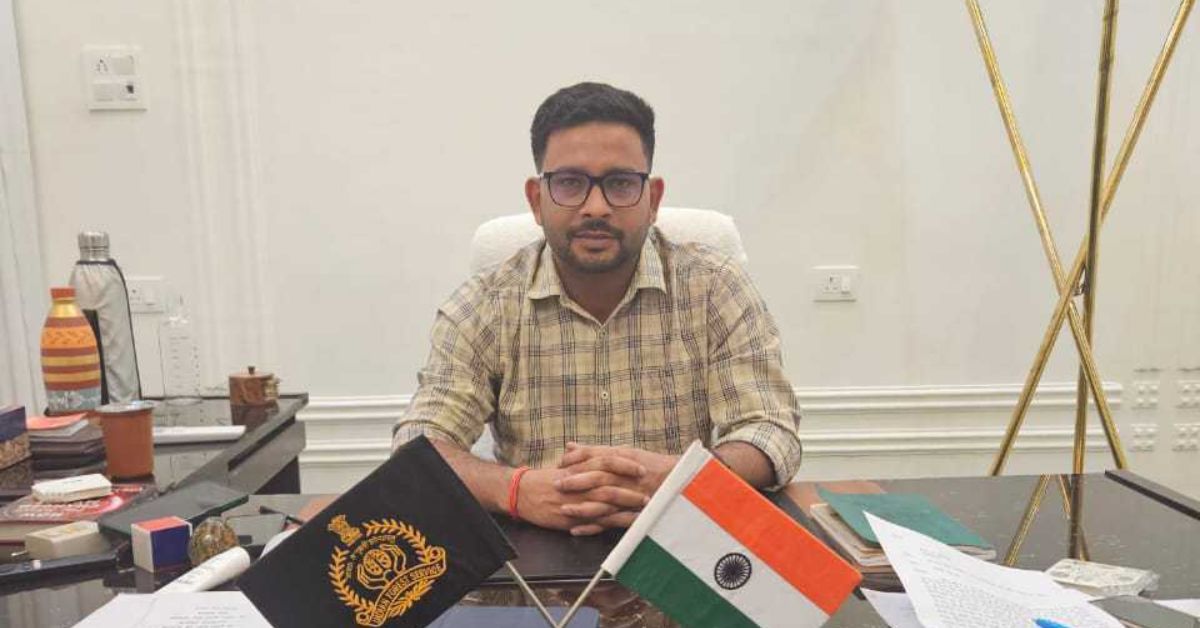
Discussing his future plans, the IFS officer says, “We intend to expand the facility and introduce new initiatives such as a plant library. This library will provide information about various plant species, allowing visitors to deepen their botanical knowledge. Our goal is to offer immersive experiences that foster appreciation for the natural environment and inspire conservation efforts.”
(Edited by Padmashree Pande; All Pictures credit: Vikas Nayak)
If you found our stories insightful, informative, or even just enjoyable, we invite you to consider making a voluntary payment to support the work we do at The Better India. Your contribution helps us continue producing quality content that educates, inspires, and drives positive change.
Choose one of the payment options below for your contribution-
By paying for the stories you value, you directly contribute to sustaining our efforts focused on making a difference in the world. Together, let's ensure that impactful stories continue to be told and shared, enriching lives and communities alike.
Thank you for your support. Here are some frequently asked questions you might find helpful to know why you are contributing?



